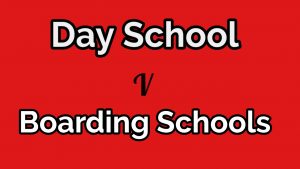Advantages And Disadvantages Of Attending Boarding School: A boarding school is generally known as an institution of learning where students live within the school premises at the course of their studies. Most boarding schools are owned by private individuals while some are owned by government. Private boarding schools are owned by churches (missionaries) non-governmental organizations and individuals as sole proprietors.
Boarding school has existed for many centuries, but became popular during the colonial expansion era of the British Empire, where children and wards of British colonial administrators were trained in British culture.
In recent time, boarding school has become so popular and has been seen as one of the best system of bringing up a child academically. However, while most people see boarding school as an institution of learning for only the rich, others see it as a place where lazy parents keep their children.
Boarding school accommodates students from primary to secondary level. During the period of learning or during academic session, students are not allowed to go out or go home or even move out of the school premises without due procedure, proper recognition and permission given to such student to leave the school premises.
Also, parents and guidance are given the opportunity to visit their wards at the boarding, at a stipulated time and period set aside by the school management. This is to ensure that they (parents or guidance) come to check up on their children and also ensure that every pressing need of their wards are met.

RECOMMENDED: Meaning and Differences Between developed and developing countries
Advantages (Merits) of attending boarding school
It is pertinent to state that before any parent or guidance would consider taking their child or children to a boarding school, they should first of all scrutinize and make necessary inquiries on the advantages, disadvantages, possible cause and effect of allowing their child or children to attend a boarding school.
The advantages of attending boarding school include: (i) Healthy environment and conducive atmosphere of learning (ii) Becoming independent (iii) Development and decision making.

1. Healthy Environment and Conducive Atmosphere for Learning: Boarding school as an institution of learning where students live within the school premises during the course of study, provides a healthy environment and A conducive atmosphere for learning.
Before a school is approved to be a boarding, it must have reached necessary requirements which the provision of a healthy environment and a conducive atmosphere for learning is the major requirement.
Students in boarding school learn among their peers and this is achieved by avoiding overpopulated or overcrowded classrooms. Also, enough and quality learning facilities are put in place for students effective learning, and boarders make full use of these facilities especially in practical and research to enhance pragmatic learning.
Furthermore, toilets and bathrooms are provided and are regularly kept clean, unlike most day schools where little or no care is given to cleaning the toilets and bathrooms and the lack of these necessary things pollute the environment, makes the atmosphere inconducive, and this as such causes health issues to students and impede the process of learning. But this laziness and the inability to keep a healthy environment and a conducive atmosphere for students is not found in boarding schools.
2. Becoming Independent: Being independent academically is one of the greatest challenges students face in the field of learning. But becoming independent is a visible advantage of attending boarding school.
Boarding school gives students the avenue and the ability to take and make reasonable decisions pertaining to their studies and educational life.
In boarding school, students are allocated time for their private or personal studies and are kept under a watch to see that each each and everyone
utilizes that time. This particular act, helps in training the student to be able to take good decisions, effectively make use of time and importantly, to be academically independent.
Now, when a student becomes academically independent, it sends to the student’s consciousness that if he or she does not study, then there is no room for passing exams or any room to depend on a fellow student because efforts are made to cub examination malpractice in boarding schools.
RECOMMENDED: How to become a successful lawyer
3. Development and Decision Making: In boarding school, students are exposed to different trainings, which help them develop physically, mentally and psychologically. Boarding school has a smaller class size and this promotes peer interaction and teacher-student relationship. In a smaller class size, students engage in conversation and discussion with their peers which helps them open up to learning and overcome inferiority complex. This also helps them develop and become able to make reasonable decisions.
More so, in a smaller class size, teachers tend to have this one on one interaction and relationship with students and through this, could be able to identify every child’s weakness and in turn implement necessary actions needed for such child to develop, and be able to make useful decisions.
A boarding school comprises of students from different tribe, ethnic groups, and different family background, and a child being in the midst of different individual from different ethnic groups and backgrounds tend to learn maturity and how to balance conflicting interests.
RECOMMENDED: Cheapest places to live in India
Disadvantages (Demerits) of Attending Boarding School
It is often said that anything that has advantages also has disadvantages. This assertion is a truism in the context of boarding schools. Boarding schools has its advantages, but its disadvantages has risen to a great length, and they include: (i) High rate of immortal acts, (iii) Inadequate Feeding, (iii) Decline in parents-child relationships (iv) Child Abuse, etc.

1. High Rate of Immoral Acts: Immoral acts have encroached the boarding school and have eaten deep into the life of students.
Some students in boarding school engage in all sort of immoral act such as homosexuality, hard drugs intake and all manner of immoral which is a danger to their life.
Most students who stays in boarding schools indulge in these acts which are morally unacceptable due to peer influence, and this in turn destroys the students academics life and also pose the student as a tool of oppression and mass destruction in the society.
RECOMMENDED: Can the Supreme Court overrule itself? See Answer
2. Inadequate Feeding: Good food is a medicine to the body, and helps in boosting human immune system and stand against sicknesses and deficiencies.
Studies has proven that there are kinds of foods which help human brains to develop and function well. In boarding school, students are limited to a particular food menu, which they feed on day in, day out. Generally, children do joke with some of their peers who is a boarder because of the kind of meal they eat and the manner in which those food are given to them.
Evidently, you will see such student looking malnourished because of the inadequate feeding system in the boarding school. This affects the child’s psychology and physical appearance.
In boarding school, much attention is not paid to the feeding of the children because to them, the essence of a student‘s being in school is to study and not eat food, forgetting that health is wealth.
RECOMMENDED: Best law firms in the world 2021
3. Decline in Parents-child Relationship: Attending boarding school creates this kind of lacuna and a wide gap between a child and the parents. A child practically spend almost all his days in the boarding school where little or no parental affection is shown to him. He or she tends to rely on peers and teachers.
More so, most students have ‘School mothers’ and ‘School fathers’ whom they reverence as parents and relate to them pressing and disturbing issues of their lives which they ought to have related to their parents or guidance.
Attending a boarding school also creates this kind of independence and freedom in decision making in matters or issues where parents are to be duly informed, they neglect parents involvement.
4. Child Abuse: The issue of child abuse is often reported in boarding schools. Junior students are vulnerable and open to abuse by their senior colleagues. Most of these students have been abused , molested and sexually assaulted by their senior and most of the times, by their own teachers who are meant to be a shield and fortress over them. And this leaves a serious trauma, and push them into psychological problems which may last for a lifetime. Some are exposed to ordeal in the name of punishing them and teaching them discipline,and this could damage the life of a student and keep him or her in endless pain and agony.
To get more points on the advantages (merits) and disadvantages (demerits) of attending a boarding school, I highly recommend that you watch the video below.
RECOMMENDED: How to start up a blog while in school
Conclusion: Boarding school is one of the best school system in the world, however, issues has been raised regarding the flaws of boarding school. But then, it is expedient for one to first of all consider the necessary things, know the benefits of sending your child to a boarding school, known the disadvantages and know which one is fit and proper for your child’s growth and development. Also, drastic reforms should be made in boarding schools so as to mitigate the evil and dangers of attending boarding school.

Edeh Samuel Chukwuemeka, ACMC, is a lawyer and a certified mediator/conciliator in Nigeria. He is also a developer with knowledge in various programming languages. Samuel is determined to leverage his skills in technology, SEO, and legal practice to revolutionize the legal profession worldwide by creating web and mobile applications that simplify legal research. Sam is also passionate about educating and providing valuable information to people.